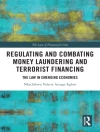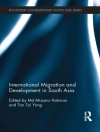Changing Energy outlines how humanity established the current energy economy through three previous transitions, and how we now stand poised for a necessary fourth transition. Human societies around the globe have received immense benefits from uses of coal, oil, gas, and uranium sources, yet we must now rebuild our energy economies to rely on renewable sources and use them efficiently. The imperative for a fourth energy transition comes from dangers related to climate change, geopolitical tensions, documented health and environmental effects, and long-term depletion of today’s sources. John H. Perkins argues that a future in which current levels of energy service benefits are sustained can come only from investments in the technologies needed to bring about a fourth energy transition.
Changing Energy envisions a viable post–fossil fuel economy and identifies the barriers to be overcome.
Jadual kandungan
Preface
Prologue
1. The Invisible Keystone of the Modern World
2. Energy and Energy Services
3. Energy and the Modern State
4. Primary Fuels and Energy Efficiency
5. Energy Systems
6. Climate Change
7. Geopolitical Tensions, Health and Environmental Effects, and Depletion
8. The Fourth Energy Transition: Energy Efficiency and Renewable Energy
9. Energy Sources: Criteria for Acceptability
10. Strengths and Weaknesses of Primary Energy Sources
11. Barriers and Challenges
Epilogue
Appendix 1. Units for Measuring Energy and Power
Appendix 2. Production of Heat by Combustion and Fission
Notes
Glossary
Index
Mengenai Pengarang
John H. Perkins is Professor Emeritus at The Evergreen State College, where he taught Environmental and Energy Studies and directed the Graduate Program on the Environment. He is a Senior Fellow with the National Council for Science and the Environment as well as Visiting Scholar at the University of California, Berkeley. He is also the author of Geopolitics and the Green Revolution: Wheat, Genes, and the Cold War and Insects, Experts, and the Insecticide Crisis: The Quest for New Pest Management Strategies.












